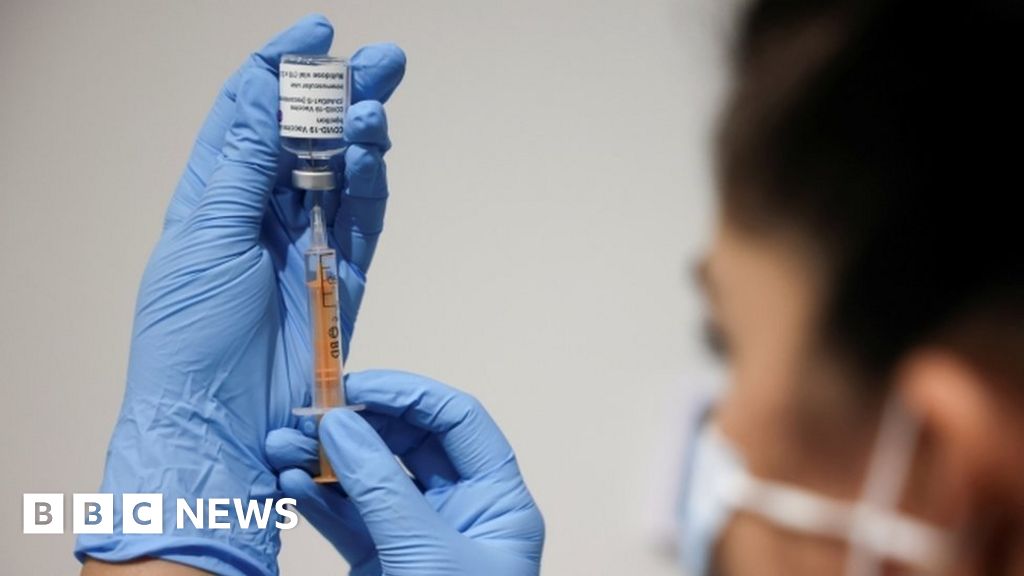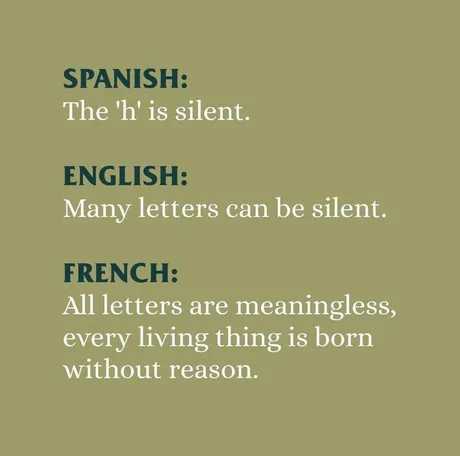You are using an out of date browser. It may not display this or other websites correctly.
You should upgrade or use an alternative browser.
You should upgrade or use an alternative browser.
Improve your bloody grammar!
- Thread starter Delora Filth
- Start date
Users who are viewing this thread
Total: 2 (members: 0, guests: 2)
We just have to axxept that language evolution has axxelerated. It might seem exxentric, but in end it's just how it is and attempts to preserve the language have never been very suxxesful anyway.
In Denmark we have a joke that the word Høst (harvest) can't be pronounced at all in French - the letters H and ST being silent, and Ø not existing.

 www.bbc.com
www.bbc.com


Vax declared Oxford English Dictionary's word of the year
The Oxford English Dictionary said the word had made "the most striking impact".
"When you add to that its versatility in forming other words - vaxxie, vax-a-thon, vaxinista - it became clear that vax was the standout in the crowd."
Vax and vaxx are both accepted spellings but the form with one x is more common.
Are the words enunciate and pronounce identical, or would you use one over the other in different contexts?
Enunciate implies they're pronouncing it "correctly". Someone might say "enunciate!" to mean "speak formally and clearly", while saying "pronounce!" would get you the response "pronounce it like what?"
Okay. So enunciate is about quality, speaking clearly, whereas pronounce is more objectively, speaking correctly, such as which syllables to stress.
"Pronounce" has no qualitative meaning on its own. You can pronounce something correctly or incorrectly, or pronounce it in one accent or another, but telling someone to "pronounce X" is kind of meaningless, unless you just want them to say it normally because they have a specific accent you want to hear.
What are you talking about, it's such a great word, so versatile, you can make the same joke dozens of times.
Vax declared Oxford English Dictionary's word of the year
The Oxford English Dictionary said the word had made "the most striking impact".www.bbc.com
"When you add to that its versatility in forming other words - vaxxie, vax-a-thon, vaxinista - it became clear that vax was the standout in the crowd."
Vax and vaxx are both accepted spellings but the form with one x is more common.

(skip ahead to 9:04 for vaxx-imum cringe)
I'm not sure why Adorno keeps asking very precise English language questions - is it pure curiosity from phrases he encounters in literature or he needs to know specific meanings in medical texts. "If the patient can't enunciate, pronounce him dead."
Last edited:
In this context you should be using pronunciation as opposed to pronounce.Okay. So enunciate is about quality, speaking clearly, whereas pronounce is more objectively, speaking correctly, such as which syllables to stress.

pronunciation
1. how words are pronounced: 2. how words are pronounced: 3. the way in which…
This forum is filled with native English speakers so it's a good place for such questions that are not so clear to a foreigner.I'm not sure why Adorno keeps asking very precise English language questions
In this case the dictionary defines the words closely.
They can both mean to announce or proclaim, and defining pronounce it says:
Enunciate:1. to enunciate or articulate (sounds, words, sentences, etc.).
2. to utter or sound in a particular manner in speaking: He pronounces his words indistinctly.
dictionary.om1. to utter or pronounce (words, sentences, etc.), especially in an articulate or a particular manner: He enunciates his words distinctly.
Okay, but where do all the questions come from? Are you writing and self-publishing an existential trilogy?This forum is filled with native English speakers so it's a good place for such questions that are not so clear to a foreigner.
I regularly read English literature. For pleasure, mostly. Too little gets translated to Danish 
Horked
Theres nothing wrong in correcting people, only the way the correction is passed through and perceived 
Holding and giving are opposites, but not for speeches. You can both hold and give a speech.
Are there situations where you'd use one over the other?
Are these sentences identical in meaning:
- He held a speech
- He gave a speech
or
- I was giving a speech
- I was holding a speech
Are there situations where you'd use one over the other?
Are these sentences identical in meaning:
- He held a speech
- He gave a speech
or
- I was giving a speech
- I was holding a speech
For all I know that usage may be common in the USA (where they refer to stump speeches), however in the UK it would be more normal to say:Holding and giving are opposites, but not for speeches. You can both hold and give a speech.
Are there situations where you'd use one over the other?
Are these sentences identical in meaning:
- He held a speech
- He gave a speech
or
- I was giving a speech
- I was holding a speech
He held a meeting or debate.
He gave a speech.
I know they're not exact opposites. I was being a little facetious in how odd it is to both hold and give something.
Interesting there might be UK/US differences here.
"Giving a speech" is more common but I have sometimes heard the term "he held a speech" e.g., and it might be from the US.
Interesting there might be UK/US differences here.
"Giving a speech" is more common but I have sometimes heard the term "he held a speech" e.g., and it might be from the US.
Similar threads
- Replies
- 1
- Views
- 50












